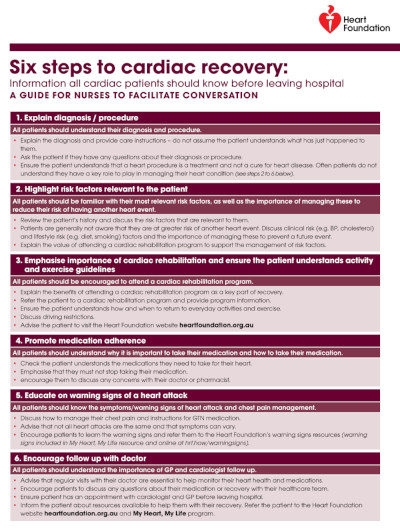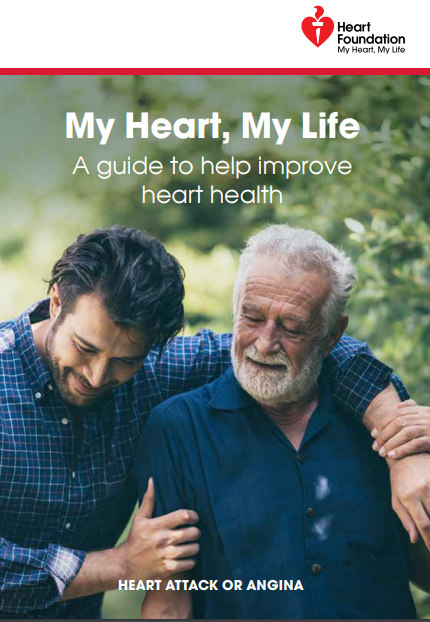Six Steps to Cardiac Recovery Poster
|
My Heart My Life Booklet 2021 |
Measuring your blood pressure at home
|
My Heart, My Life - The program |
Heart attackWhat is a heart attack : A heart attack can happen when a coronary artery becomes blocked by a build-up of plaque. The plaque can rupture, forming a blood clot, which means blood and oxygen cannot reach the heart. This damages the heart muscle, leading to a heart attack. Health professionals sometimes use different names for a heart attack, such as ‘myocardial infarction’, or ‘MI’ for short, ‘STEMI’ (more severe) or ‘non-STEMI’ (less severe).
|
ECG - electrocardiogram testAn electrocardiogram test (ECG) will give a picture of the electrical flow through the heart and give us information if a particular location in the heart has an issue. |
Coronary heart diseaseCoronary heart disease : Occurs when a coronary artery clogs and narrows because of a build-up of plaque. This can lead to a heart attack and/or angina. My Heart, My Life Booklet One chapter one contains good images to help explain this. |
Coronary arteriesCoronary arteries : The blood vessels that supply the heart are called coronary arteries; they sit on the surface of the heart. They are approximately the size of a charging cable. My Heart, My Life Booklet One chapter one has a good image of coronary arteries.
|
Coronary angiogramCoronary angiogram is a procedure to view the coronary arteries, to work out which ones may have narrowed and in the case of a heart attack the location of the blocked vessel. Also called catheterisation. Visit this great site by St Vincent's Hospital about Angiograms https://www.svhhearthealth.com.au/procedures/procedures-treatments/coronary-angiogram |
AnginaAngina is temporary chest pain or discomfort caused by the coronary artery becoming blocked by plaque and the heart not getting enough blood and oxygen. The cause is usually coronary heart disease, but it is not the same as a heart attack because the symptoms are usually temporary and there is no permanent damage to the heart. |


